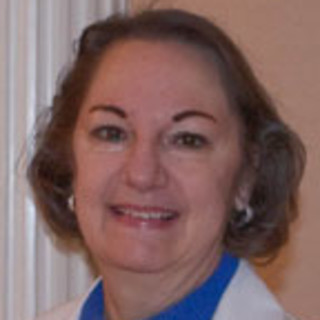
The patient stories that I remember with ease, as the years go by, are those that bookend the extremes of emotion: the exuberant victories and the tearful losses. These recollections represent the highs and lows of my medical practice and tend to be the ones I used to teach medical students. But there are hundreds, even thousands, of everyday experiences that far outnumber the memory-stickers. They are mundane, routine, even automatic, with pattern recognition playing a large part.
Here is a common pattern. An adult patient tells me that he has had right elbow pain for two weeks, a pain that is worse with using a heavy shovel. I examine his arm, probing the bony olecranon and lateral epicondyle, then palpating the soft tissue as I gently pronate and supinate his forearm with my other hand. In two minutes, I have diagnosed lateral epicondylitis: a minute and a half to listen to the man’s symptoms, followed by a thirty-second examination.
If it is a particularly busy day, I begin the examination of his arm as we are still talking. As soon as I recognize the familiar pattern on history and exam, I confidently announce to him the diagnosis. I prescribe naproxen, ice, rest, and a tennis elbow strap, as I have dozens of times in the past. Every time. I do not mull over the pathophysiology of overuse syndromes and tendon stress or the prostaglandin-fighting properties of nonsteroidal anti-inflammatory medications. And I almost certainly will not remember this one man’s tennis elbow in a year’s time.
But tucked inside such ordinary activities can be sublime moments if I am open to notice them and to receive their grace. I must remember that each elbow is connected to a person who has entrusted me not only with the health of their body but also their mind and spirit.
So, the patient with the sore elbow is actually a muscular black man, Darrell,* who greets me with “Hi, Mom!” as I enter the exam room. As only he and I would know, he is referring to our last visit, when he told me that he never uses condoms because he did not like the way they feel. What ensued that day was my standard unprotected sexual intercourse spiel, which I have given dozens of times before. On that day, Darrell responded by telling me that I sounded like his mother, which we agreed was not necessarily a bad thing. He needed advice from someone who cared about him.
So, I get “Hi, Mom!” today, and my heart feels a bit happier. Just two short words — sublime.
Mr. Thompson, a middle-aged businessman, comes to see me for knee pain. He seems different today. Quieter? Sadder? I ask him if something is wrong, and he freezes. Sitting on the exam room table, he says nothing and I say nothing. I settle down into my chair, hoping that he feels my unspoken invitation to tell me anything he wants to. More silence. I notice the hum of the lights, and I am sure that he does not.
He looks at me with tired eyes and says tentatively, “I think … I think that my son is on drugs.”
From there flows his story, imbued with his sense of failure and helplessness. Our sitting without speaking has opened the door to his crushed spirit, and he reaches out to me for help. Just a moment of silence, then trust — sublime.
Juan is a six-year-old boy on the ward, whom I am treating with intravenous antibiotics and nebulizers for pneumonia. His mother has been frantic with worry and has not left the hospital in four days. During rounds this morning, I show her a much-improved chest x-ray. Her eyes meet mine, mother to mother, and the bliss of the moment flows between us and then settles placidly into our hearts. Just a chest x-ray — sublime.
I spend a lot of time talking to my military veteran patients, asking about their experiences. Mr. Truesdale was in the Army, a “ground-pounder” in Vietnam. Since the 1970s, he has fashioned himself into an expert of sorts on the military action in Vietnam. In the course of our conversation I mention that my father was a FAC pilot.
“Forward Air Control,” he says with excitement, “now those were the real heroes of the war. Their lives were on the line every second that they were in the air.”
He proceeds to explain that these pilots — my father, I thought — flew O-1s, which were very small aircraft. Their mission was to fly low over enemy territory to identify targets in advance of the large bombers. The FAC pilots would drop white-phosphorus smoke bombs before “getting the hell outta there,” as my patient put it. The planes were in the crosshairs of the Viet Cong surface antiaircraft weapons, and many of the pilots were killed.
After my father returned from Vietnam, he never told us about any of his combat experiences. Dad has been dead for a few years now, his story seemingly lost. As Mr. Truesdale speaks, I get goose bumps. Just a brief history lesson — sublime.
Decades of medical practice have taught me that ordinary events can become sublime if I am careful not to feel rushed, if I am comfortable with silences, and if I focus on this exact moment and not the last or the next. These sublime moments have elements of awe, surprise, and exuberance, all wrapped up in the thought I’m so glad I chose to be a family physician.
* I have changed all names to protect the confidentiality of my patients.






